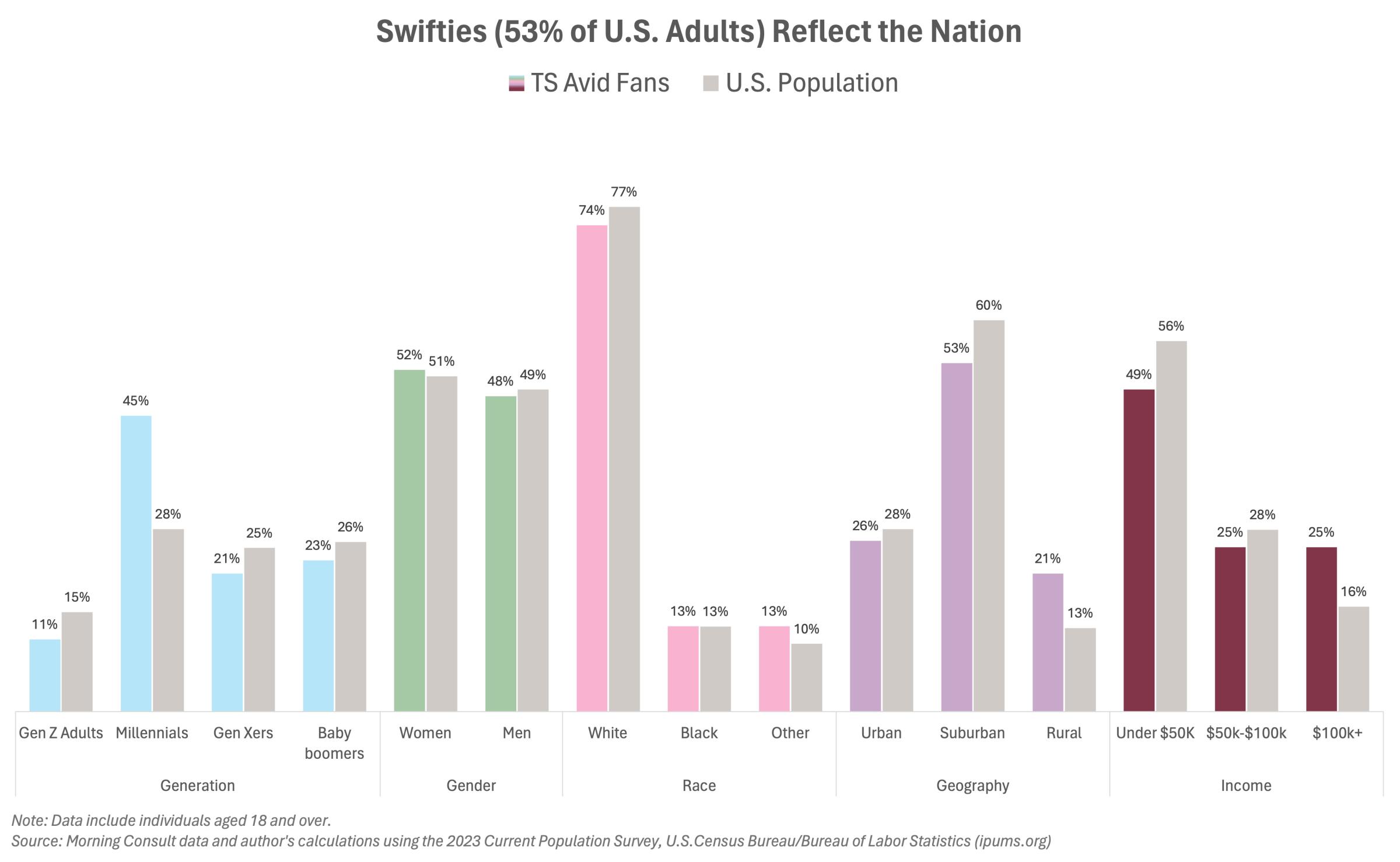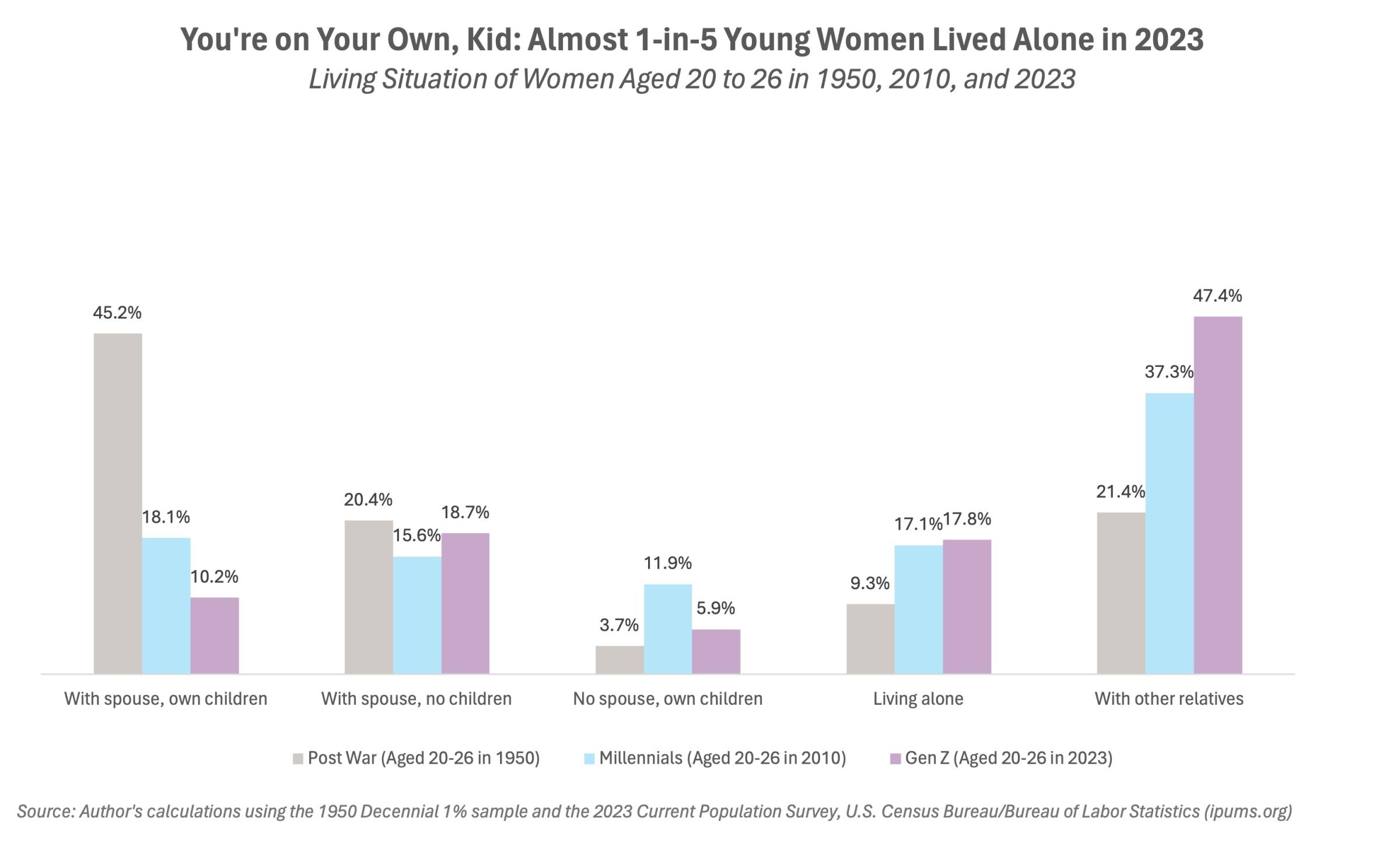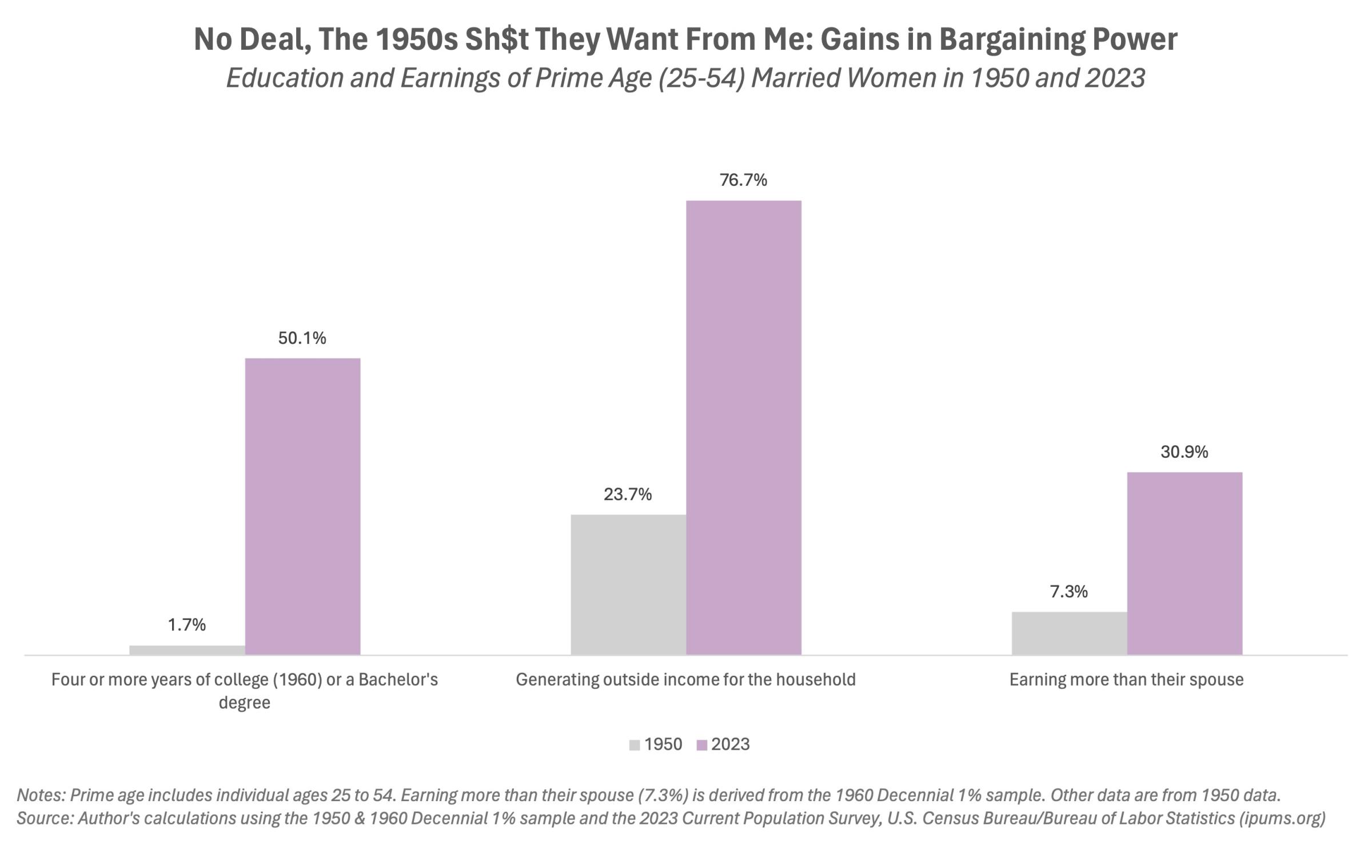The exact moment Taylor Swift came gliding into my life was when she released “The Man” music video. I remember it all too well. I was leading projects in a predominantly male organization. Colleagues had been quick to criticize my violations of unwritten rules regarding how women should lead—rules dictating niceties, get-in-line supportiveness, and instruction with subtlety.
“The Man,” written from an ambitious women’s perspective, tells the story of living in a world built for someone else. It is fun, lighthearted, and empowering. Swift has another song, “Mad Woman,” written from the perspective of how the patriarchy perceives these ambitious women. This song is dark, intense, and isolating. The fact that these two songs tell the story of each “patriarchal opponent” with such precision is what makes Swift a lyrical mastermind. Her lyrics made me feel seen.
In fact, many of us can see ourselves in her music. It drives her fandom. She taps into our feelings by writing deeply about her own. But the universality of her lyrics is not the only factor driving Taylor Swift’s mega stardom. The weight of her fans’ purchasing power is the other.
The media repeatedly posit that Swift is a powerhouse uplifting economies across the globe. Yet she would be among the first to acknowledge her fans as the true driving force. She understands their power because, in what can be best captured as a full circle moment, she also is them. Swift represents how far millennials have come in claiming ownership and independence over their financial lives. I call this phenomenon Swiftynomics. Let me explain.
Reports argue that millennial suburban women are Swift’s biggest fans but attend an Eras Tour concert and you will see men and women, young and old, parents and children, and people from cities and rural and suburban areas. Her success, while influenced by the accelerated economic independence of women, is not contained by it. Her lyrics transcend demographics giving her a wide-ranging audience—more specifically, a fan base spanning over half (53%) the U.S. adult population (more than 137 million fans).

Swift’s stardom has also accelerated because young adults, particularly women, have gained more economic agency in recent years. This is not only largely due to millennials living alone or away from their familial unit, but also, in some cases, living with parents while working. In the latter scenario, they accumulate earnings with more flexibility to spend on luxury goods by saving on the essential costs covered by their parents like rent and food. Additionally, household consumer expenditures have historically been decided by women but usually with the approval of another adult like a spouse. These expenditures generally focused on purchasing goods and services for the family, rather than oneself. These days, more women than ever before are living alone, which builds economic independence and eliminates positions of unequal bargaining power within the household. Women today are almost twice as likely to live alone in their early 20s relative to their 1950s counterparts and fewer live with a spouse or child, as shown in the figure below.

Even among women today, those aged 20 to 26 in 2023 were less likely to live with a spouse and child than their 2010 counterparts. Shifts in living arrangements are due to broad gains in education, reduced overt sexism in the workplace, access (now more limited) to reproductive health, increases in life expectancy, shifts in living arrangements driven by the pandemic, and an overall decent labor market leading to better paying jobs.
And if they were to marry (which is also quickly becoming less of a social obligation) women are bringing independently earned resources with them. As seen in the results below, married women aged 25 to 54 are three times more likely to be in the paid labor force today than in 1950. They earn more than their spouse in almost one-third of married couple households, and more than 50% have a college degree.

The increased economic freedom experienced by women helps explain why they are purchasing goods and services driven by their own preferences in addition to household needs. They are willingly spending on items that give them joy—like variants of vinyl records or Eras Tour tickets. Their shifting economic power directly contributes to the Taylor Swift craze and the local economic whirlwinds that follow her concerts across the globe.
Swift’s take from the Eras Tour alone has been estimated to reach $4.1billion. She is without a doubt financially powerful; a Millennial herself making more than her partner and with lots of economic agency. She takes ownership over her own music and business, which fuels her success. She controlled 85% of the revenue from Eras Tour tickets, previously unthinkable in the music industry. She uses that to build out a concert experience for her fans and reinvests in communities along the concert tour path.
Read More: The Staggering Economic Impact of Taylor Swift’s Eras Tour
What’s more, parents now listen with their children and purchase tickets to concerts as a family affair. Daughters watch football games with their dads instead of tik-toking with friends as they look for Taylor Swift in the audience and viewership soars. The world intergenerationally revolves around her because she speaks to many of us—and this gets to my point.
The Taylor Swift effect is a mix of universality in her storytelling and the downstream product of growth in women’s economic power and agency—of which she is a primary example. However, she is but one example. We see it play out in other aspects of society like women’s sports, female-focused wealth management, shifting support for care policies, and in all aspects of entertainment. That, in essence, is Swiftynomics at its best.
It’s clear that women today want content that speaks to their lived experiences in this one-size-fits-men world we live in. And we’re willing to pay for it, too.
More Must-Reads from TIME
- Donald Trump Is TIME's 2024 Person of the Year
- Why We Chose Trump as Person of the Year
- Is Intermittent Fasting Good or Bad for You?
- The 100 Must-Read Books of 2024
- The 20 Best Christmas TV Episodes
- Column: If Optimism Feels Ridiculous Now, Try Hope
- The Future of Climate Action Is Trade Policy
- Merle Bombardieri Is Helping People Make the Baby Decision
Contact us at letters@time.com